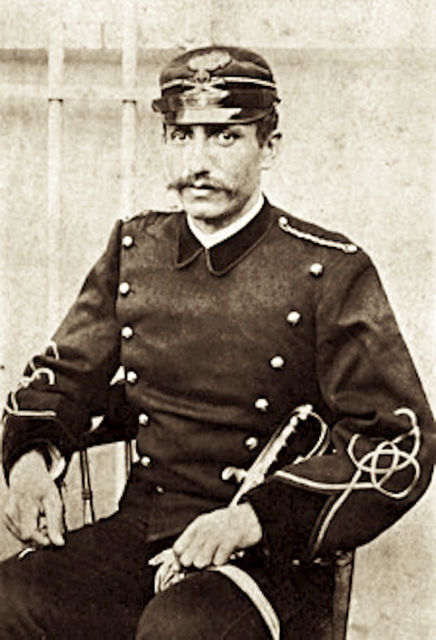Native Hawaiian revolutionist and politician Robert W. Wilcox (1855-1903) — unrelated to Kauai’s kamaaina Wilcox family — led two uprisings against the Kingdom of Hawaii ruled by King David Kalakaua. The first, which occurred in 1888, was never executed, and
Native Hawaiian revolutionist and politician Robert W. Wilcox (1855-1903) — unrelated to Kauai’s kamaaina Wilcox family — led two uprisings against the Kingdom of Hawaii ruled by King David Kalakaua.
The first, which occurred in 1888, was never executed, and a second revolt failed in 1889.
In both insurrections, Wilcox was motivated by a lack of confidence in Kalakaua’s willingness to protect the rights of Native Hawaiians.
Then, in January 1893, during the overthrow of the monarchy, Queen Liliuokalani asked Wilcox to take command of the artillery of the Royal Guard in her defense, but Wilcox did not mobilize his forces, since Liliuokalani soon after surrendered her throne — thus avoiding armed conflict.
Wilcox was also the leader of the counter-revolution of 1895 — a failed attempt by royalists to restore Liliuokalani to the throne.
Afterwards, his sentence of death was commuted and he was pardoned by Sanford Dole, president of the Republic of Hawaii.
Following the annexation of Hawaii by the United States in 1898, Wilcox entered politics and was elected Hawaii’s first delegate to Congress in 1900, thereafter serving one term until March 3, 1903.
During July 1900, prior to his election, he’d toured Kauai, while campaigning in the interests of his Home Rule Party.
There were good-sized crowds present for every speech he gave on Kauai. At Waimea, he addressed a large assembly of people in the evening, and the next night, he held another meeting at Koloa.
Two days later, Wilcox was at Kapaa, after which he spoke to number of Native Hawaiians at Hanalei, before his visit to Hanamaulu, where he remained until he returned to Honolulu.
That November, Wilcox’s Home Rule Party was elected the majority party in the Territorial Senate, gained a plurality in the Territorial House of Representatives, and Wilcox was consequently sent to Washington, D.C., to represent the Territory of Hawaii in the United States Congress.


